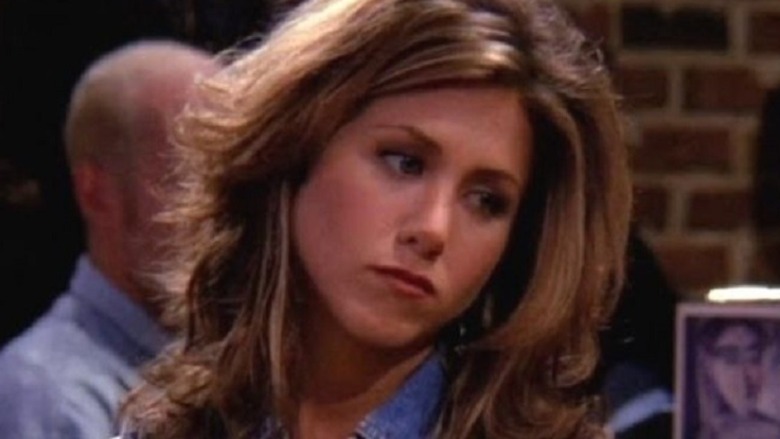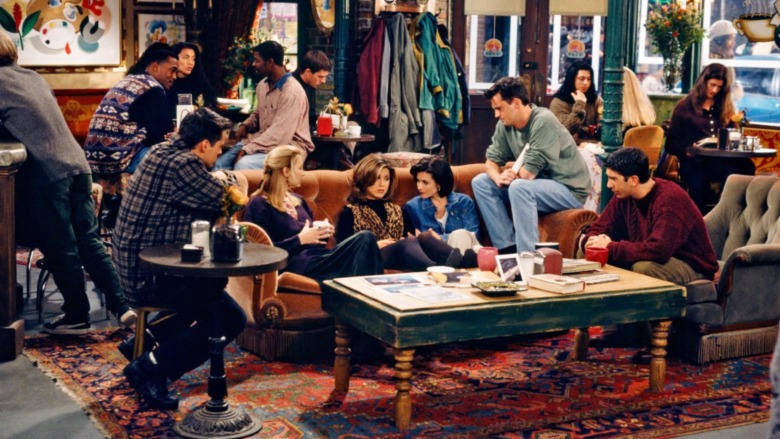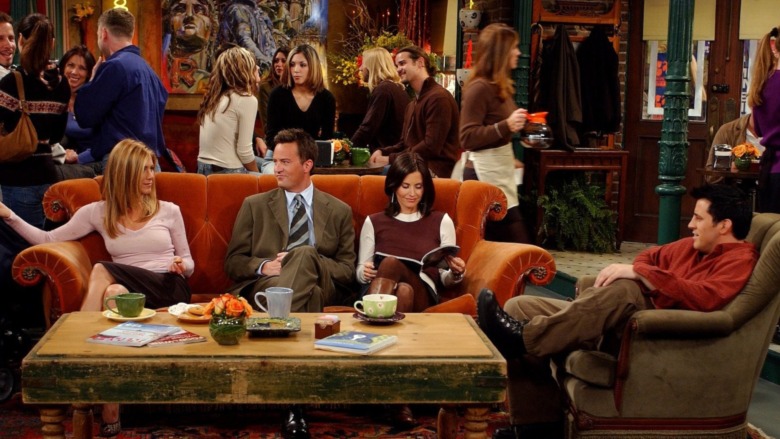The Bizarre Friends Theory That Changes Everything
When a TV show is as popular as "Friends," there's a natural tendency for fans to speculate wildly about what the show's possible secrets. On its surface, "Friends" is just a show about six people in the early stages of adulthood who rely on one another to get by. It's a sitcom, after all, and most sitcoms are not all that complicated. Its simple relatability was what made "Friends" hugely popular in its heyday, and thanks to streaming services, it's remained one of the biggest shows in the world.
There are plenty of outlandish theories about "Friends," including speculation that Phoebe is a secret genius, or that Jack Geller wasn't actually Monica's father. While these theories are fairly far-fetched, you can generally follow their logic and see how the obsessed fans in question got where they were going.
Many fans are willing to entertain these slightly outside-the-box theories, but there are some that are a bridge too far even for them. That includes one theory in particular that connects the world of "Friends" to the founding of Starbucks.
Was Friends just an elaborate setup for Starbucks?
As the theory goes, "Friends" was actually designed to get its viewers out of bars — a major setting in other sitcoms, like "Cheers" — and into coffee shops. The theory comes from writer Alex Baker, who (in what seems to be a joke) suggests that the show was integral in transforming America into a nation obsessed with Starbucks.
"Let's start here," Baker writes on Facebook. "Rachel's surname is 'Green' — the main color of Starbucks' logo. Coincidence? Compare Rachel's hair to the Starbucks logo? Look similar? ... I THINK SO!!"
Baker also points out that one of the defining aspects of a visit to Starbucks is the fact that they shout your name when your order is ready. He explains that Geller, the last name of siblings Ross and Monica, is derived from the German word "Gellen," which means "one who yells."
These connections may seem a little spurious, but Baker has more tenuous connections where those came from.
Moby Dick is somehow involved in this particular Friends theory
In his theory, Baker also states that Starbucks derives its name from Starbuck, a character featured in Herman Melville's "Moby Dick." From there, Baker somehow gets all the way back to "Friends."
"Chapter 119 of Moby Dick is called 'The Candles,'" Baker explains. "Do you think that it's just a coincidence then that the frankly obscure name 'Chandler' ... is actually the occupational name given by the British to someone who makes and sells ... yep, you guessed it ... CANDLES!!!"
Baker also ties the theory to his reference to "Cheers," suggesting that Frasier Crane's move from Boston (where "Cheers" is set) to Seattle (where "Frasier" is set) is significant because Seattle is also where Starbucks is headquartered.
All of these tenuous connections may add up to something for some people, but most people who have seen the theory were left scratching their heads. Ultimately, that may have been what Baker was seeking to prove: you can connect anything to anything else if you try hard enough.


